#CNMI
Text
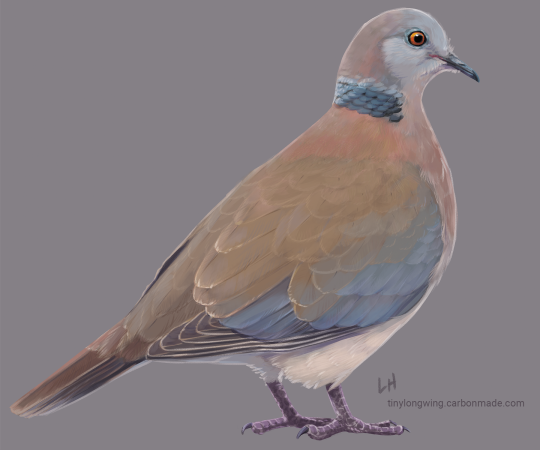
Philippine Collared-Dove (Streptopelia dusumieri). Declining in their home range (Philippines), but quite common in villages of the Northern Mariana Islands where they were introduced sometime in the 1700s. Now considered naturalized, they're charming & sort of goofy with their hoarse cooing from the power lines and coconut palms.
#dove#pigeon#collared-dove#birb#borb#scientific illustration#ornithology#island birds#northern mariana islands#cnmi#philippines#philippine collared-dove#birblr#birdblr#artists on tumblr
262 notes
·
View notes
Text
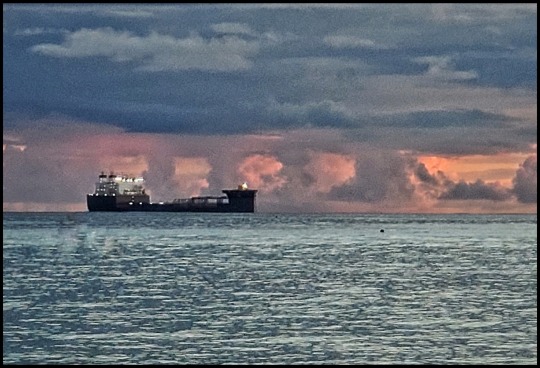
Ship off the island of Saipan
Northern Marianas Islands, Micronesia 2019
#photobythomas;#nautical;#ship;#micronesia;#seascape;#saipan;#cnmi#original photographers#photography on tumblr
7 notes
·
View notes
Photo

Dope😍👌 Reposted from @__anniebaby My favorite place 💙 📷 @rotarubin 🧜🏽♀️ @__anniebaby follow us 👇👇👇👇👇👇 @spearfish.and.freedive.world . . . . . . . #diving #freediving #divers #scubadivinggirls #ダイビング #フリーダイビング #水中写真 #ダイビング好きな人と繋がりたい #自由潛水 #潛水 #rota #cnmi #sandfworld #angelsofthesea #padi #divespots #saltnomads #divermag #seeyouunderwater #beautifuldestinations #beautifulplaces #underwater #uw #spotlight #bestfreedivegear #spotmydive #girlsthatfreedive #DeeperBluePhoto https://www.instagram.com/p/CgGL_lRI5ZQ/?igshid=NGJjMDIxMWI=
#diving#freediving#divers#scubadivinggirls#ダイビング#フリーダイビング#水中写真#ダイビング好きな人と繋がりたい#自由潛水#潛水#rota#cnmi#sandfworld#angelsofthesea#padi#divespots#saltnomads#divermag#seeyouunderwater#beautifuldestinations#beautifulplaces#underwater#uw#spotlight#bestfreedivegear#spotmydive#girlsthatfreedive#deeperbluephoto
8 notes
·
View notes
Text

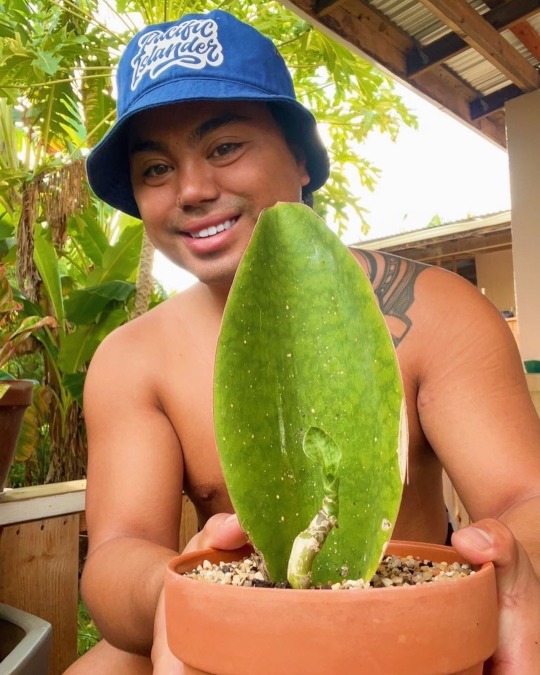
the grass is greener where you water it🪴 Instagram/ TikTok: Josh_v98✨
#saipan#CNMI#chamorro#Guam#pacific islander#islandlife#tropical#gay#lgbtq#Micronesian#polynesian#gay pride
4 notes
·
View notes
Link
#Federal Government#Guam#CNMI#Compact of Free Association#Contextomy#Deb Haaland#Federated States of Micronesia#Hawai’i#James Moylan#Lou Leon Guerrero#Republic of Palau#Republic of the Marshall Islands
1 note
·
View note
Photo

by _Zinni_ on Flickr.Bird Island, Saipan, Micronesia.
0 notes
Photo

by _Zinni_ on Flickr.Bird Island, Saipan, Micronesia.
0 notes
Photo

by _Zinni_ on Flickr.Bird Island, Saipan, Micronesia.
0 notes
Text
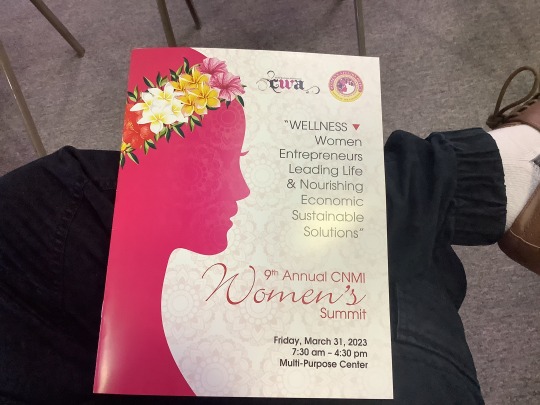


9th Annual CNMI Women’s Summit start on Friday March 31. 7:30am - 4:30pm Child protective services for protect children who’s been abuse Or bullying at home or at school.
1 note
·
View note
Photo
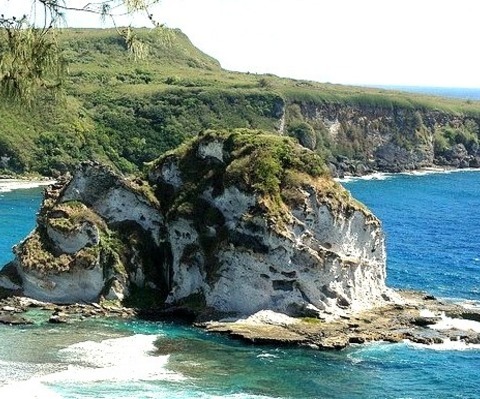
by _Zinni_ on Flickr.Bird Island, Saipan, Micronesia.
0 notes
Text
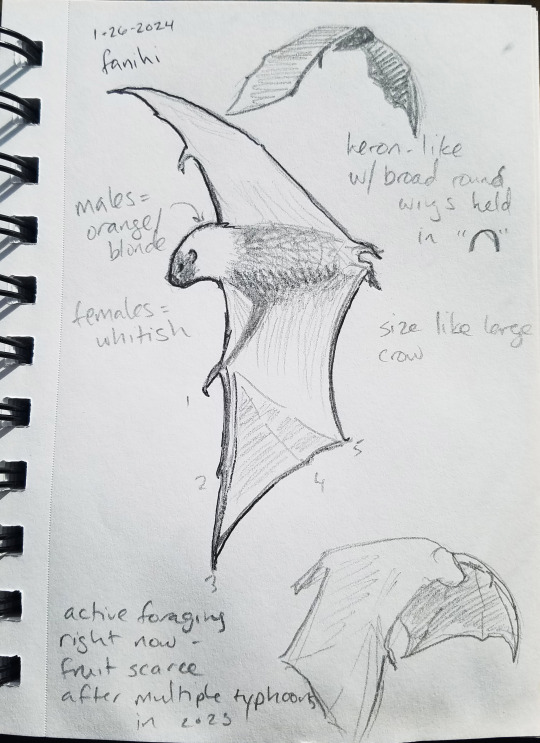
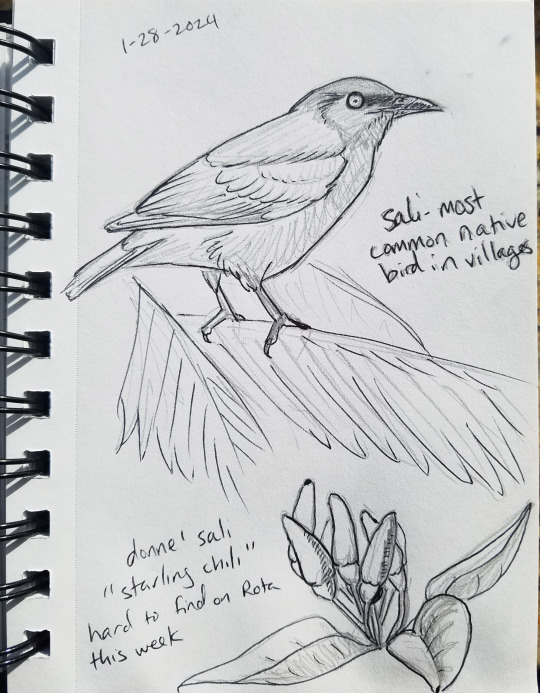
Back to the Marianas next week! Here are two field sketchbook pages I didn't manage to post yet, of fanihi (Mariana fruit bat) and sali (Micronesian Starling).
Fanihi were kind of everywhere on Rota, and I saw more of them in five days there than I have in all my time working on Saipan over the years. It's good to know that their population is healthy there, though the locals said that they were seeing them more than usual also because of a behavioral change. Typhoons in 2023 had stripped the trees of flowers and fruit and delayed the new fruiting season, so part of the reason fanihi were so visible was that they were spending a lot more time than before having to find food.
Pretty important when doing any kind of science to keep behavior and detectability in mind - seeing more bats doesn't always mean there are more bats, just that they may be more visible than normal for other reasons.
#field sketchbook#fruit bat#starling#fanihi#sali#mariana islands#cnmi#rota#rota island#scientific illustration#artists on tumblr
42 notes
·
View notes
Photo

Don’t bet on these cards! Arnold Palacios and Ralph Torres are a bad bet for the future of CNMI. Sablan and Staffler won’t gamble with your future! Sablan & Staffler 2022
1 note
·
View note
Text
US Should Think Systematically About Democracy in the Pacific

As a matter of policy, the United States government seeks a free and open Pacific. This concept revolves around three key components. First, the United States seeks a world in which Pacific Islanders are free in their daily lives and reside in liberal democratic societies. Second, the United States seeks a world in which Pacific Island countries are free to manage their own domestic and international affairs. Third, the United States seeks a world in which the Pacific Islands Region is committed to the rules-based order that has governed international relations for decades.
In implementing this policy, the United States government must contend with the inherent tension between freedom, openness, and security in regional affairs. As Abraham Maslow taught us, the need for safety and survival dominates the need for freedom and independence. Given this hierarchy of needs, it is reasonable to expect sovereign states to prioritize foreign relations that ensure their safety and survival over those that promote their freedom and independence. Of course, liberal democratic states tend to prefer international relations with other liberal democratic states, all things being equal. However, all things are rarely if ever equal when major powers compete for access and control in small island states.
To square this circle, the United States government must constantly strike a balance between freedom, openness, and security in regional affairs. As suggested by Thomas Carothers and Benjamin Press, this is particularly difficult whenever there is a risk that confronting a partner government over its lack of commitment to democracy will trigger hostilities that could endanger the security benefits imparted by the relationship. One therefore needs to be mindful of where the Pacific Island countries fall on the political spectrum and where they are willing to engage in relations along the democracy-authoritarian divide. As it stands, several appear prone to such democracy-security dilemmas, including Fiji, Kiribati, Nauru, Papua New Guinea, and Solomon Islands. This arguably includes at least one liberal democratic state in Kiribati.
Since the invasion of Ukraine, the United States government has shown a pragmatic willingness to accommodate the non-democratic interests of other sovereign states in return for their strategic alignment against major power competitors. The diplomatic rehabilitation of Saudi Arabia serves as a case in point. Echoing Richard Youngs, this raises the question of whether the ‘free and open Pacific’ will be reduced to a mobilizing narrative for strategic partnerships that are only rhetorically driven by a commitment to strengthening democratic norms. Counter the pundits, the answer to this question still rests with the Biden administration and the United States Congress, who must decide whether it is in the national interest to reorder the region in full or part along the authoritarian-democracy divide.
In search of a coherent and comprehensive reply, the United States government will need to take into account the subregional dynamics at play in the Pacific. Aside from Nauru, the foundations of democracy are relatively strong across Micronesia. The subregion contains the Freely Associated States and many of the United States Pacific Territories. Plus, it is proximate to Hawaii. In contrast, there is far less of a commitment to democratic governance, democratic institutions, and rule of law in Melanesia. Apart from Bougainville, the strategic benefits to be gained by playing the democracy card appear less compelling too. For these reasons, one could argue that a stronger case can be made for reordering Micronesia along the authoritarian-democracy divide than Polynesia and Melanesia.
Whatever the strategic calculus, the United States government should seek to integrate and harmonize its policy approach within the region and beyond.
On the domestic front, a false dichotomy is often drawn between the domestic policy and the foreign policy of the United States in the Pacific. Paraphrasing Martin Holland, they are entwined and interdependent phenomena. Just look at the politics of COFA migration. On the international front, a false binary is often portrayed between the strategic collaborators and the strategic competitors of the United States in the Pacific. As Jonathan Hughes and Jeff Weis have warned, strategic partners are not simple, homogenous entities. Even among allies, one should expect some degree of divergence between what each perceives to be their national security interests and the priorities that should be assigned to them. Consider the Suez Crisis as an example.
To avoid such black and white thinking, the Biden administration and the United States Congress should take into careful consideration the perspectives and interests of the State of Hawaii, United States pacific territories, Freely Associated States, treaty allies, and Taiwan when deciding whether it would be in the national interest to reorder the region in full or part along the authoritarian-democracy divide.
Michael Walsh is an affiliate of the Center for Australian, New Zealand, and Pacific Studies of the Edmund A. Walsh School of Foreign Service at Georgetown University.
This article appeared in The Hill on August 3, 2022.
Image Credit: The Hill Newspaper
#democracy#hawaii#guam#samoa#cnmi#pacific#cofa#palau#marshall islands#micronesia#joe biden#state department
1 note
·
View note
Photo






Her in this red dress 😍
#ester exposito#2022#cnmi#sustainable fashion awards#milan fashion week#italy#red carpet#gorgeous#woman#red dress#blonde hair#make-up#goals#spanish#actress
1 note
·
View note
Photo

by _Zinni_ on Flickr.Bird Island, Saipan, Micronesia.
1 note
·
View note
Text
Julianne Moore attends the CNMI Sustainable Fashion Awards 2023


41 notes
·
View notes